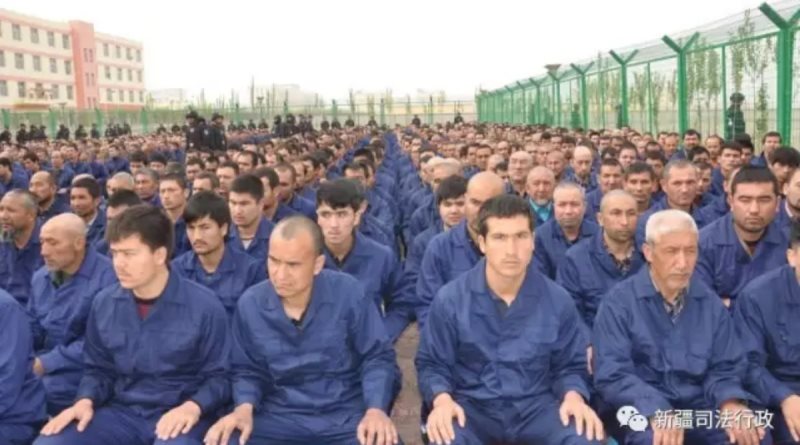Headlines:
- Xinjiang Chairman confirms Internment Camps
- World weighs into Saudi Assassination
- Yemen on the brink of Famine
Xinjiang Chairman confirms Internment Camps
As pressure mounts on China on its internment camps, a top official in the Xinjiang region has given a detailed account of China’s treatment of its citizens in its largest province. As chairman of the government in the autonomous western region, Shohrat Zakir gave extensive details in an interview published in the state-controlled Xinhua news agency. This is the first time China has admitted to the existence of internment camps, due to mounting global criticism. Zakir said the “vocational education” centres were proving effective in staving off terr. He said “trainees” were grateful for the opportunity to change their ways and make their lives more “colourful”. Zakir denied allegations that up to a million Muslim Uighurs and other minority groups were being detained, but insist that action is necessary to prevent terrorism. Mr Zakir said the region had been facing the “three evil forces” of terr, extremism and separatism since the 1990s, so the government had taken action to tackle the “root causes”. In the most detailed description yet of what goes on inside the centres, he said classes were given on Chinese history, language and culture and attendees were given “an awareness of the nation, citizenship and rule of law”. He did not say whether those attending were forced to do so, but indicated they were staying on site, saying that cafeterias provided “nutritious, free diets”, dormitories were “fully equipped” and there were regular contests and sporting events. The World Uyghur Congress has said people are being held in detention indefinitely without charge. Some former detainees have told the BBC of physical as well as psychological torture. They allege that entire families have disappeared. Human Rights Watch has accused China of “rampant abuses” which violate the rights to freedom of expression, religion and privacy.
World weighs into Saudi Assassination
The world has gone into a frenzy over the disappearance and now confirmed death of Saudi journalist Jamal Khashoggi inside the Saudi consulate in Istanbul earlier this month. Saudi officials have for the last week denied any wrong doing but when Turkish officials gave the issue international publicity the Saudi version of events have changed each time. Reports are now emerging that the Saudi monarchy is preparing a report that will admit that journalist was captured and interrogated within the consulate, and that the interrogation “went wrong” and he died in the process. Officials now admit the report will conclude that the killing was done without prior clearance, as a way to shift responsibility for the death away from Saudi leadership and toward the interrogators. The problem for Saudi is Turkey, Qatar and much of the European media are using the issue to undermine Saudi regime which has been at forefront of supporting the US agenda in the region. The US has announced US Secretary of State Mike Pompeo’s will visit to Saudi Arabia. President Trump has been downplaying the entire affair, and suggested that “rogue killers” were to blame. Even if the Saudis admit to killing the journalist, Trump has rejected the notion of any action that would threaten massive US arms sales to the Saudis, saying the US would be “punishing itself” by losing the sales.
Yemen on the brink of Famine
Yemen could be facing the worst famine in 100 years if airstrikes by the Saudi-led coalition are not halted, the UN has warned. If war continues, famine could engulf the country in the next three months, with 12 to 13 million civilians at risk of starvation, according to Lise Grande, the agency’s humanitarian coordinator for Yemen. She told the BBC: “I think many of us felt as we went into the 21st century that it was unthinkable that we could see a famine like we saw in Ethiopia, that we saw in Bengal, that we saw in parts of the Soviet Union – that was just unacceptable. “Many of us had the confidence that would never happen again and yet the reality is that in Yemen that is precisely what we are looking at.” Yemen has been in the grip of war when the Houthis rose up against the regime that long oppressed them as part of the Arab spring. But regional nations and the global powers all weighed in turning the country into a proxy war. Thousands of civilians have been caught in the middle, trapped by minefields and barrages of mortars and airstrikes. The resulting humanitarian catastrophe has seen at least 10,000 people killed and millions displaced.

